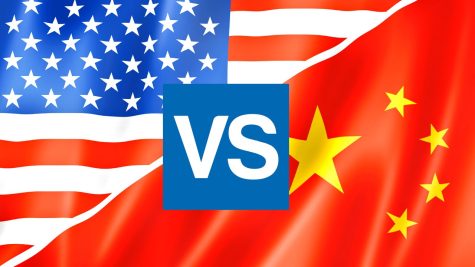America’s Fall From Grace Part I
The Anti-Militarist Paper
“
No nation could preserve its freedom in the midst of continual warfare.
— James Madison
No nation could preserve its freedom in the midst of continual warfare.
— James Madison
Two hundred and forty-five years ago, a nation with great potential was born.
Inspired by the Great Enlightenment, these citizens questioned and fought against the concept of a king’s divine right to rule. Their bright minds and rebellious attitude led to them challenging a centuries long status quo. These revolutionaries sought not to implant another absolute monarch in the place of the departing, but to experiment with democracy: Where leaders had the power to rule only under the consent of the governed. Presidents were to be elected by the people, and given four year terms.
At the end of George Washington’s second term, he published a farewell address in a newspaper. A message urging Americans to avoid permanent alliances and conflicts with other nations.
But as decades passed, and European geopolitical conflicts endangered the new nation, the country was forced to pick sides.
The Louisiana purchase, along with the War of 1812 was the beginning of a century-long thirst for land outside of the original territory, and a general aggression toward the indigenous peoples of North America. Throughout the 1800s, they purchased Florida from Spain in the Adams-Onis Treaty (1819), relocated Native Americans during the Trail of Tears (1831), went to war with Mexico for western land in the Mexican-American war (1846), and came to a compromise with Britain to divide the U.S and Canada along the 49th parallel. (1846)
In the view of many, “manifest destiny” was an inevitable expansion from east to west widening the original 13 states. All of the violence that came from these conquests was justified as being their destiny.
By the 1860s, the U.S. had expanded all the way from the Atlantic Ocean to the Pacific. While still complying with all of their international treaties, they had nowhere left to go. In 1867 though, the United States purchased Alaska from Russia. This was the first territorial holding which was not connected to the mainland. This set a precedent for future expansion, establishing that Americans were not only entitled to mainland America, but also any other land that was available to them.
This turning point in American expansion from natural to opportunistic culminated in the explosion of the USS Maine and the declaration of war on Spain (1898). After a quick war, America annexed almost all of their colonial holdings, not just in the Caribbean, but the Pacific too. America’s quick annexation of these holdings suggested that the war might have been part of some preexisting plan to take over strategic ports, while maintaining its noble public image.
Later, it was concluded by American naval investigators that the explosion of the Maine was likely not caused by a Spanish attack. It was found that the explosion was caused by an internal fire that activated its ammunition, definitively proving that the invasion was unwarranted. (History.com the-maine-explodes)
During the Spanish-American war, the U.S. was using the Hawaiian islands as a naval base in their pacific campaign against Spain. Five years earlier, American sugar planters and missionaries, supported by the U.S. Marines had overthrown the Hawaiian government. The Queen’s refusal to accept American economic treaties imposed on her country led to an unlawful military coup. In 1898, the U.S. annexed Hawaii despite the fact that most Hawaiians did not support it. This was yet another example of how economic priorities and military involvement corrupted American ideals.
Continued In Part II

Henry Wilkins is a sophomore at Norwalk High School. He was born in Manhattan on September 17, 2006. Growing up, he loved writing, especially science...














